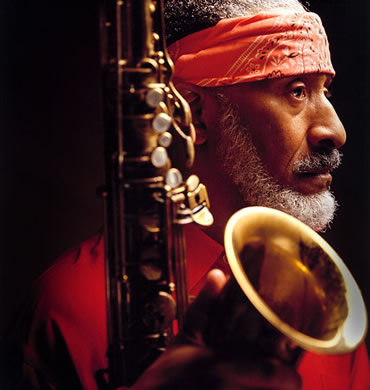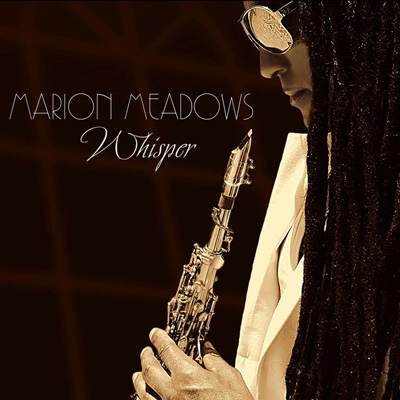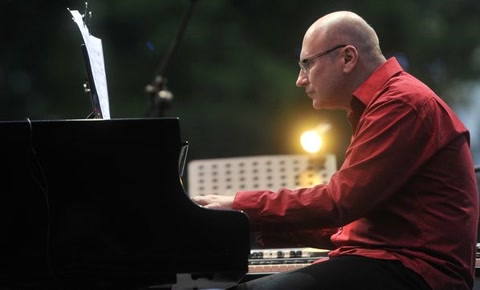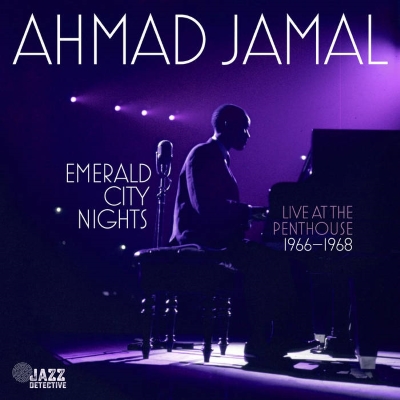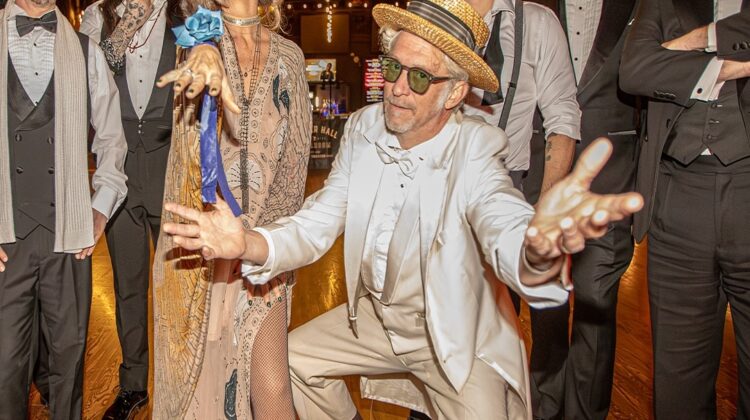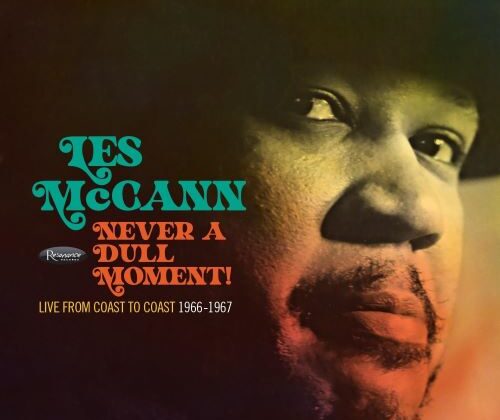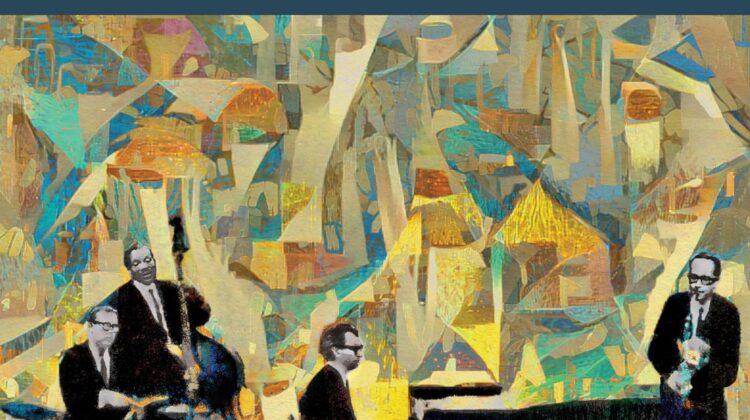Jazz Detective, the label of musical producer and jazz archaeologist extraordinaire Zev Feldman, captured the attention and praise of the jazz universe with its first releases: Ahmad Jamal’s Emerald City Nights: Live at the Penthouse (1963-1964) and (1965-1966).
Indeed, the two-LP/two-CD albums received much notice as one of the top historical albums of the year, including first place in DownBeat’s 2023 Reader’s Poll.
But Feldman wasn’t done.
Radio host and sound engineer Jim Wilke’s treasure chest contained still more eight-track tapes of Jamal’s performances at the Penthouse. Wilke’s diligence in the sixties allowed the chronological progression of Jazz Detective’s albums documenting Jamal’s numerous shows at the Seattle nightclub.
Jamal was enthusiastic about the tapes’ sound quality, digitally restored by Sheldon Zaharko and Bernie Grundman. The respect that the Penthouse’s owner, Charlie Puzzo, Sr., paid to Jamal extended to the fact that he would bring in a concert grand piano for each of his concerts there.
Jamal himself supervised the albums’ production. Before he passed on April 16, 2023, he saw the release of the two 2022 albums, the critics’ unanimous praise, and the listening public’s rediscovery of his virtuosity.
Jamal also supervised this third volume that was released in November, 2023. No doubt, Jamal and the other producers agonized over which of the abundance of outstanding performances would be included in the album. For instance, Jamal’s two weeks of music at the Penthouse in April, 1968 were narrowed down to but three tracks on the album. Such a wealth of jazz riches may have led to the decision to carry over three more performances from Jamal’s September, 1966 concerts. Three other songs from that event appeared on the previous album, Emerald City Nights: Live at the Penthouse (1965-1966); those two weeks in 1966 segue from one album to the next.
The consistency of the first two albums’ production qualities remains on the most recent album, Emerald City Nights: Live at the Penthouse (1966-1968). The trilogy’s admirable comprehensiveness of content, uncompromising packaging values, insightful testimonials and essays, photographs and posters from the era—and best of all, the immediacy, vigor, individuality, and spontaneity of Jamal’s style—remain superb throughout the series of albums. Jamal continues to be as inventive and robust as he was earlier in the decade, all three albums seeming to be a continuation without noticeable differences of style.
Too valuable to omit, the three 1966 tracks from Album #2 present three musical sides of Jamal. “Gloria’s” slow tempo allows Jamal to stretch out during the ballad with his trademark flowing arpeggios, quick quotes (such as “The Shadow of Your Smile”), broad block chords (this time with oblique re-harmonizing), unexpected but appropriate embellishments like strumming the piano’s strings, sumptuous tremolos, and punchy but controlled accents. The up-tempo “Fantastic Vehicle” reminds listeners of Jamal’s affinity for vamps and stirring rhythms, allowing drummer Frank Gant to elaborate upon Jamal’s percussiveness. Humor prevails too, the middle section including Jamal’s plinking of single treble notes in call with bassist Jamil Nasser and Gant’s droll responses. Even though Errol Garner’s “Misty” may have been played as a tribute to its composer, one of Jamal’s early influences, Jamal nonetheless makes the song his own with a version of over 12 minutes. First, Jamal eases into a light Latin rhythm—and his own vamp. But from 5:08 to 6:37, a contrasting agitation unlike anything Garner played ensues as the trio moves into a furious rhythmic build-up. It eases into a “C-Jam Blues” samba for calmness again, that reassuring sound unexpectedly breaking into fury again before the vamp fades at the end.
As the first of the selections from Jamal’s August, 1967 show, “Mr. Lucky” receives similar inventive treatment as the trio plays Mancini’s composition at a quick pace. The Garner influence becomes apparent. Jamal’s propulsive left-hand quarter-beat chords animate his version of dramatic fully chorded accents and scampering improvisation. His extended version of “Corcovado” moves through several sections, as do most of Jamal’s performances, the rubato solo introduction suggesting his studies of European classical composers like Ravel. Then, each chorus increases in intensity. The descending gales of chords in unison with Nasser lead to Jamal’s floating sustained chords over Gant’s quicker rhythmic undercurrent. Unambiguous swing picks up the pace to a faster level that remains throughout the rest of the piece, the standard bossa nova approach abandoned as improvisation develops along a style that’s unmistakably Jamal’s. The inclusion of songs popular at the time leads to “Where Is Love?” from Oliver!, which Jamal alternates between straightforward melody and his signature arpeggios and block chords. The trio plays “Dance to the Lady,” from saxophonist John Handy’s 1959 In the Vernacular album, as a puckish, lilting, joyous jazz waltz with allusions to Burt Bacharach’s “Wives and Lovers.”
Jamal’s Penthouse performances from April, 1968 include, once again, popular songs: audience pleasers like “Naked City Theme,” “Emily,” and “Alfie.” One of the more haunting television themes, Billy May’s “Naked City Theme” (or “Somewhere in the Night”) alternates between minor and major modes. Jamal interprets it with his forceful left-hand quarter-note chords before a dramatic solo ending. Teasingly, Jamal’s “Naked City Theme” improvisation hints at the song that follows, “Emily,” as he quotes from its three-note signature phrase and re-harmonizes the following measure. Jamal plays a solo melodic version of “Emily” as a flowing rhythmless interlude of less than three minutes. As if all three songs are part of a single suite, Jamal moves into “Alfie” without the slightest pause as he blends “Emily’s” nominal three notes into “Alfie’s” bridge. The album’s final track, “Alfie” remains breezily comfortable in a medium-tempo zone until 8:08. Then, Jamal repeats the “When you walk let your heart lead the way” phrase twice with growing force. He concludes with fortissimo authoritative chords that fade to a pianissimo hush just as speedily. Jamal finishes “Alfie” with a line of single treble notes stating the first eight bars of the song. A quickly rising arpeggio ensues. Then, an arco bass sustain. A cymbal splash.
How fortunate that these tapes were preserved for the additional enjoyment from and for a re-appreciation of one of the greats of jazz piano.
Artists’ Web Site: https://ahmadjamal.com
Label’s Web Site: www.thejazzdetective.com
www.elementalmusic.com



